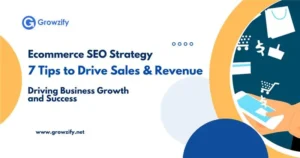
Why Do You Need Enterprise SEO?
Enterprise SEO helps large websites scale online visibility, improve rankings, and drive consistent organic growth.
Written byChitranshu Sharma
July 21, 2025
- Home
- Blog
- SEO
- Enterprise
- Why Do You Need Enterprise SEO?
Quick Nav
Managing SEO for a large website isn’t just about optimizing a few pages and calling it a day. It’s about guiding a sprawling, fast-moving machine—with hundreds (if not thousands) of pages, teams, tools, priorities, and technical quirks all moving at once. That’s whereEnterprise SEOcomes in. It gives you the structure and scalability needed to make sure your site not only ranks—but keeps ranking as your business grows.
If you’re leading digital strategy at a mid-size or large company, this probably sounds familiar:
- Teams working toward different goals
- A site that’s grown faster than it’s been organized
- Silos between content, dev, and product
- Feedback loops that go nowhere
- And a general sense that no one’s quite sure what’s actually improving performance
You don’t need another list of SEO tips. You need a system built for scale.
What Is Enterprise SEO?
At a basic level, Enterprise SEO is the process of applying SEO across large-scale websites—ones with hundreds or thousands of pages. But scale is just part of the story.
The real value is in the strategy. It’s about aligning your search presence with real business goals: launching new products, growing into new markets, building brand authority, generating revenue.
It’s also deeply cross-functional. Enterprise SEO connects with:
- Web and product development cycles
- Legal and compliance workflows
- Paid and organic marketing efforts
- The realities of your CMS and tech stack
You’re not optimizing in a vacuum—you’re working across departments, timelines, and sometimes, egos. And your job is to keep the SEO engine running without stalling everything else.
Why It’s So Crucial Now
Search is changing—fast.
AI-driven previews, zero-click results, and shifting SERP features are shrinking the space brands can compete in. If your company offers multiple products, serves several markets, or relies on organic discovery, then SEO isn’t just helpful—it’s foundational.
Here’s why more businesses are investing in enterprise SEO right now:
Your Competitors Are Already Gaining Ground
If your competitors have invested in scalable, structured SEO—and you haven’t—they’re slowly taking over the search results your customers see every day. Even if your offering is stronger, it won’t matter if no one finds it.
Over time, that lost visibility chips away at brand awareness, traffic, and ultimately, sales.
You’re Publishing a Ton of Content… That’s Going Nowhere
A lot of companies produce content at scale. But most of it barely sees the light of day.
Enterprise SEO helpsyou connect each piece to real demand—through intentional keyword targeting, logical site structure, and smart internal linking. Without that backbone, even the best-written content falls flat.
Your Site Keeps Growing—But Rankings Don’t
Adding more pages doesn’t guarantee better rankings. In fact, without proper structure and technical hygiene, it often makes things worse.
Enterprise SEO helps make sure search engines can crawl, index, andunderstandyour site. That means fewer dead ends, fewer duplicate signals, and a site that actually performs as it scales.
What Enterprise SEO Really Looks Like
Let’s pull back the curtain a bit. Here’s what a real enterprise SEO strategy involves:
Strategic Keyword Mapping—at Scale
This isn’t about choosing 10 keywords for your homepage. You’re mapping out entire product lines, service areas, and customer journeys—often across thousands of URLs. Every page has a role to play, and it’s your job to define it.
And guesswork doesn’t cut it. You need clean data, smart prioritization, and alignment with real business outcomes.
Technical SEO—Built to Scale
Enterprise SEO isn’t about fixing broken links one at a time. It’s about spotting patterns across huge volumes of pages.
Areinternal linksbreaking across templates? Are dynamic pages causing crawl traps? Is JavaScript rendering blocking key content? These are large-scale issues, and they need systems—ideally built with your dev team—to fix them before they multiply.
Deep Cross-Team Collaboration
SEO impacts everything—and is impacted by everything.
You’ll work with developers to improve crawlability and speed. With content teams to ensure consistency. With legal to get sign-offs. With executives to show results.
That kind of collaboration only works with shared roadmaps, clear documentation, and a culture of communication. Otherwise, you’re just shouting into the void.
Governance and Guardrails
When dozens of people across different teams are publishing content, things can unravel quickly. You end up with inconsistent tone, duplicate topics, outdated templates, and missing metadata.
Enterprise SEO puts systems in place to keep everything aligned: editorial guidelines, content review workflows, automated checks. It’s about building infrastructure that keeps your SEO strategy on track—even when you’re not watching every page.
What Happens Without It
Here’s what tends to happen when companies try to “do SEO” without a proper enterprise approach:
Everyone’s Operating in Silos
The blog team is doing one thing. The product team’s shipping features. The brand team is restructuring navigation.
And none of it’s connected.
Enterprise SEO acts as the glue—making sure every team’s work supports a unified growth strategy, not just their own KPIs.
Pages Start Competing With Each Other
Without proper planning, different teams create multiple pages targeting the same keywords or topics. This confuses search engines—and instead of ranking one strong page, none of them rank.
This silent traffic killer is more common than you’d think. Enterprise SEO solves it through coordinated content planning.
Technical Debt Slows Everything Down
If SEO isn’t included early in planning, technical problems pile up fast.
Redirect chains, orphaned URLs, messy sitemaps, bloated navigation, missing structured data—all of it adds up. And the longer it goes unaddressed, the harder (and more expensive) it is to fix.
Bringing SEO into the product and dev process from the beginning prevents these issues before they become problems.
What Metrics Actually Improve With Enterprise SEO?
You’re not doing this just to say you “did SEO.” You want real impact. Here’s what you’ll typically see move when enterprise SEO is in place:
- Growth in non-branded organic traffic
- Higher rankings on commercial-intent keywords
- Bigger share of voice compared to competitors
- Improved index coverage and crawl health
- Organic-influenced revenue growth
- Better content ROI (traffic and conversions per page)
And most importantly, you create compounding growth that doesn’t reset every quarter.
Do You Really Need Enterprise SEO?
If your site is small (say, under 100 pages) and only a couple of teams touch it, you might be fine with traditional SEO for now.
But if your site:
- Has hundreds or thousands of URLs
- Spans multiple products, regions, or customer segments
- Requires cross-functional coordination
- Needs to rank for high-intent keywords in a competitive space
- Is planning to grow significantly in the next 12–18 months
Then yes—enterprise SEO isn’t just helpful. It’s essential.
What to Look for in an Enterprise SEO Partner
You don’t need someone who’s just “good at SEO.” You need someone who understands how to operate inside large organizations.
Look for someone who:
- Understands large-site architecture inside and out
- Can work closely with teams who aren’t SEOs
- Prioritizes what actually moves the needle—not just what’s trendy
- Communicates clearly and documents well
- Knows how to integrate with content, product, and dev processes
- Uses tools like Botify, Oncrawl, Ahrefs, GSC, and Looker Studio with purpose
A good partner won’t just fix things. They’ll help you build an SEO system that doesn’t break in the first place.
Final Thoughts
Enterprise SEO isn’t just a “channel” you turn on. It’s the framework behind your brand’s visibility, discoverability, and digital growth.
When it’s done well, the gains add up. Every content improvement, every technical fix, every collaboration you nail—it all builds on what came before.
You stop reinventing the wheel every quarter. And you start building something that scales.
If search matters to your business, it’s time to stop thinking in terms of rankings—and start thinking in systems.
Chitranshu SharmaA growth strategist, digital marketing consultant, and the founder of Growzify, a performance-driven agency helping brands dominate search, shape perception, and build sustainable online visibility. With 8+ years of hands-on experience in Enterprise SEO, Online Reputation Management (ORM), and AI-led traffic generation, Chitranshu has helped startups, public figures, SaaS companies, and cannabis brands outrank competitors — ethically and at scale.
Explore More Articles

How to Choose the Best White Label SEO Agency in India
How to Choose the Best White Label SEO Agency in India Choosing the right white...
January 7, 2026White Label
🔍
Why SEO Matters for Manufacturing Companies
Why SEO Matters for Manufacturing Companies Strong online visibility helps manufacturers reach decision-makers, generate qualified...
September 10, 2025Manufacturing
🔍
What is SEO in the Pharmaceutical Industry?
What is SEO in the Pharmaceutical Industry? In a highly regulated and competitive field, strategic...
September 9, 2025Pharma
🔍
What is the Difference Between Enterprise SEO and Traditional SEO?
What is the Difference Between Enterprise SEO and Traditional SEO? Enterprise SEO focuses on optimizing...
September 8, 2025Enterprise
🔍
Guide to Enterprise SEO Services for Corporates
Guide to Enterprise SEO Services for Corporates This guide explores how large businesses can leverage...
September 2, 2025Enterprise
🔍
Does SEO Work for Restaurants?
Does SEO Work for Restaurants? SEO absolutely works for restaurants by helping them appear in...
September 1, 2025Restaurant
🔍
Why Your Pharma Company Needs SEO
Why Your Pharma Company Needs SEO Pharma Company SEO is essential for building online trust,...
August 26, 2025Pharma











